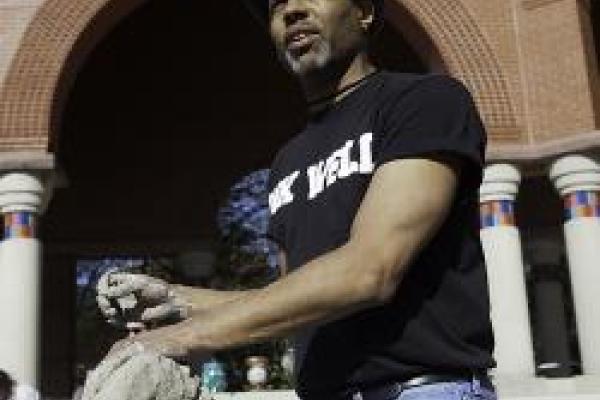
In response to the water crisis, artists have taken the lead recently in the production of low-cost ceramic water filters created from local materials to provide an affordable means for rendering disease contaminated water potable. This presentation provides a summary of the global water crisis as a human rights call to action and offers a response grounded in local materials, artistic interventions, and curricular possibilities. A central theme in the presentation is the premise that humans have long created such objects, images, and experiences as positive artistic interventions that encourage others to engage meaningfully with the world.
B. Stephen Carpenter, II is Professor of Art Education and Professor-in-Charge of the Art Education Program at the Pennsylvania State University. His mixed media installations and performance artwork have been exhibited in regional, national, and international exhibitions. Carpenter is the author of book chapters in art education, visual culture, and curriculum theory, as well as numerous journal articles. Carpenter is co-author ofInterdisciplinary Approaches to Teaching Art in High School, and co-editor of Curriculum for a Progressive, Provocative, Poetic, and Public Pedagogy and was editor of Art Education, the journal of the National Art Education Association (2004-2006) and co-editor of the Journal of Curriculum and Pedagogy (2010-2012). He is a recipient of the National Art Education Association (NAEA) Eugene Grigsby Award and was named an NAEA Distinguished Fellow in 2013.
This event is sponsored by the Center for Material Culture Studies Working Group of the Humanities Institute.
